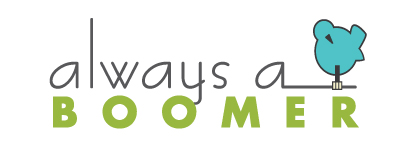A fall. A car accident. An act of violence. A sudden medical situation.
Our lives can change.
Just like that.
I’ve completed my advance directives. That means I’ve put into writing what treatments or lifesaving measures I do or do not want if I’m unable to communicate my wishes. My advance directives allow me to provide clear instructions as to my end-of-life wishes.
Just like that, we may become physically or mentally unable to communicate our personal desires regarding end-of-life treatment.
Tuesday, April 16th, is National Healthcare Decision Day. It’s a day to learn more.
Lots of people say they want to make their end-of-life medical decisions known, but most have not shared that information. Here are just a few facts, compiled by the California Healthcare Foundation and The Conversation Project:
90% of people say it’s important to talk with loved ones about end-of-life care;
27% have actually done so.
60% of people say it is extremely important to make sure family is not burdened with such decisions;
56% have not communicated their end-of-life wishes to family.
80% of people way they would want to talk with their doctor about wishes for end-of-life treatment options;
7% have actually had that conversation.
82% of people say it’s important for them to put their wishes related to end-of-life medical treatments in writing;
23% have done so.
Determining our end-of-life treatment wishes, sharing them with loved ones, and putting them in writing can lift a tremendous burden. It’s difficult to imagine the sadness and stress our family members may experience if we become traumatically injured or ill; sharing our end-of-life wishes may help make the process a bit easier for them.
The first step in completing your advance directives is to give your wishes a lot of thought. For example, what are your fears, your concerns, your personal feelings about your death. Learn what you can about end-of-life medical treatment options. Talk with a trusted person, whether a healthcare provider, your minister, and a person knowledgeable about advance directives to help you think through the process and consider what is important to you.
I first learned of advance directives when I had an outpatient procedure; I could have easily learned more and appreciated the value of an advance directive had I been open to the concept at the time. Since then I’ve learned a lot, by talking with people knowledgeable about end-of-life treatment, and from life experiences.
A life-threatening injury or illness can happen to anyone, at any time.
At the end of this post, you will find links to:
– resources that can help you think through choosing a health care agent (the person you trust to make health care decisions for you if you are unable or do not want to make them yourself), and other information about your advance directive and decisions you may make;
– advance directives forms that will help you clarify your wishes, provide a format for you to indicate your end-of-life treatment wishes, indicate when a signature is required, provide a document for your doctor, and give you information that may help you as you determine what and how to share your wishes with your loved ones.
It may not be easy for you to talk with your loved ones about your end-of-life wishes. But consider that having a conversation, or several if necessary, may lessen the pain, doubt and anxiety your loved ones may face. To some, it becomes a touching, heartfelt way to share their love and wishes should they become unable to speak for themselves.
It can be emotional. It can be confusing. I’ve provided a link to a caring and knowledgeable professional who would be glad to share resources and talk with you about any of your questions or concerns.
If I am traumatically injured or suffer a serious medical situation, and my doctor or other attending medical professionals determine I will not wake up or recover my ability to think, communicate with my family and friends, and experience my surroundings, I want my end-of-life wishes to be followed.
Do you?
After all, our lives can change.
Just like that.
Here are resources I know you will find helpful:
Meaningful Life (www.1life1decision1story.com) offers free information and services to help you with end-of-life conversations. Carla Baum, founder and principal, is certified in Advance Care Planning through Respecting Choices, La Crosse, WI, following her career in healthcare and older adult living. You can reach Carla at cbaum1life@gmail.com;
Tuesday is National Healthcare Decision Day – https://www.npr.org/sections/money/2016/10/05/496751771/episode-521-the-town-that-loves-death
www.theconversationproject.org;
As each state has its own Advance Directives forms, see the Medicare website for more information at





